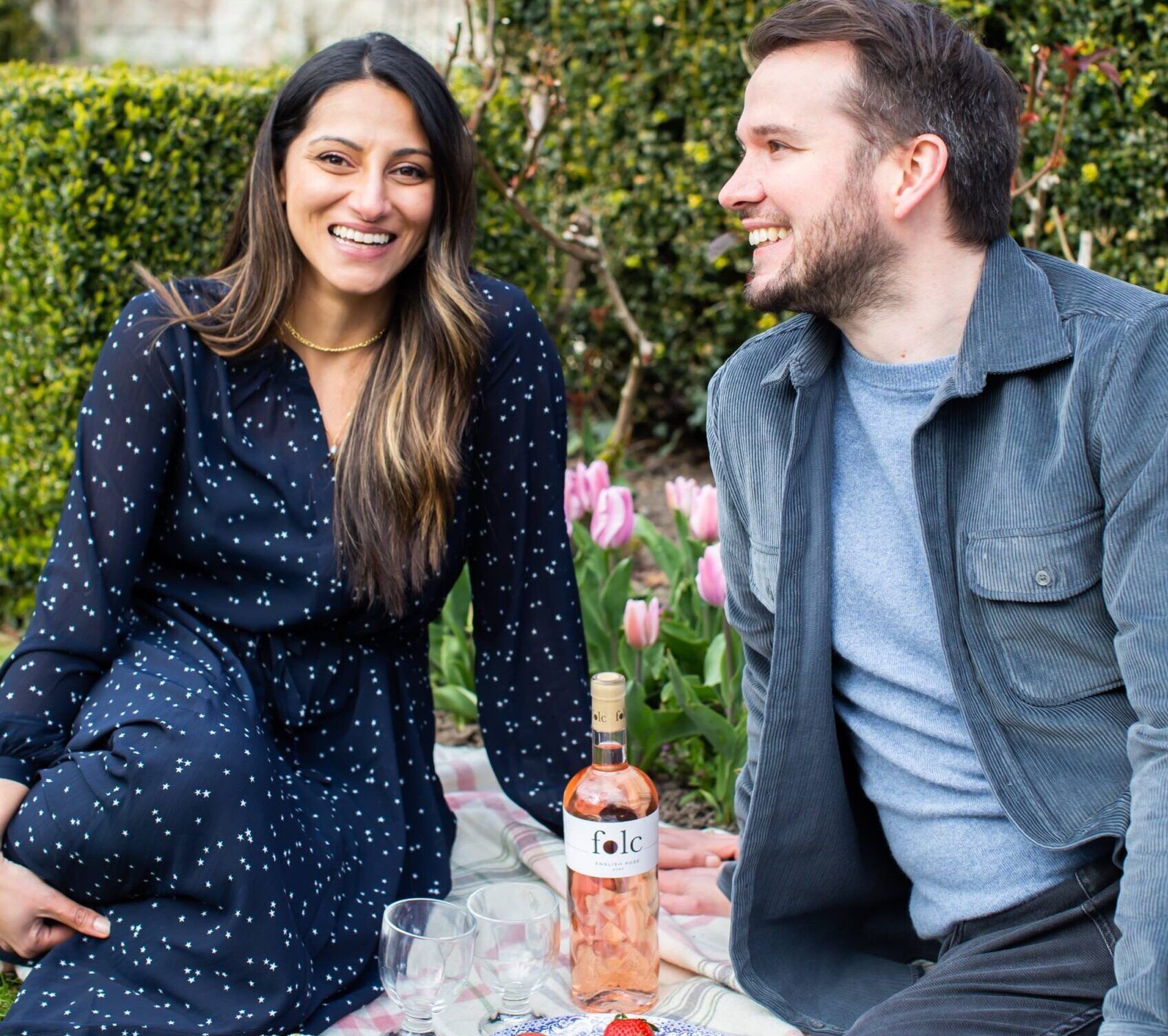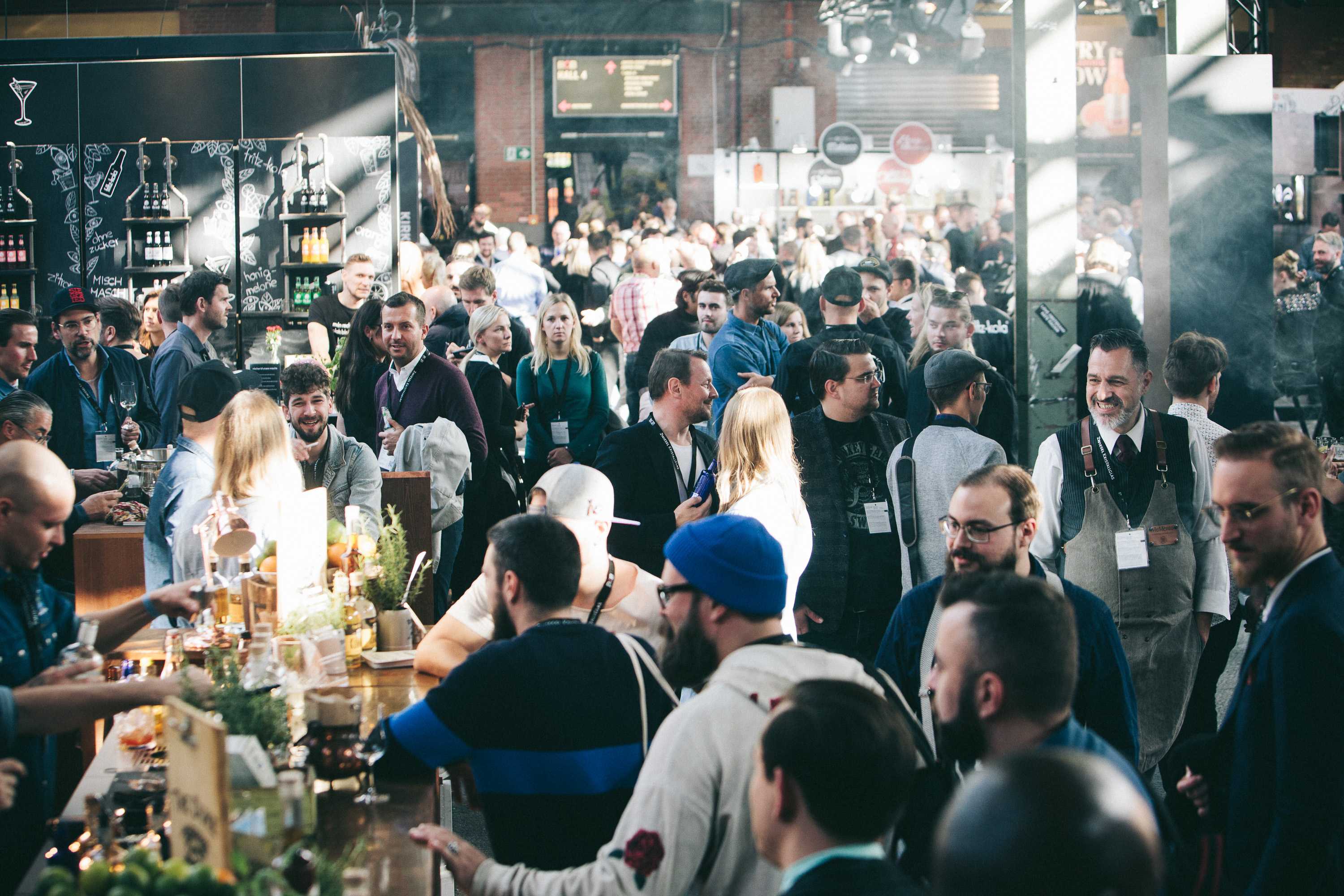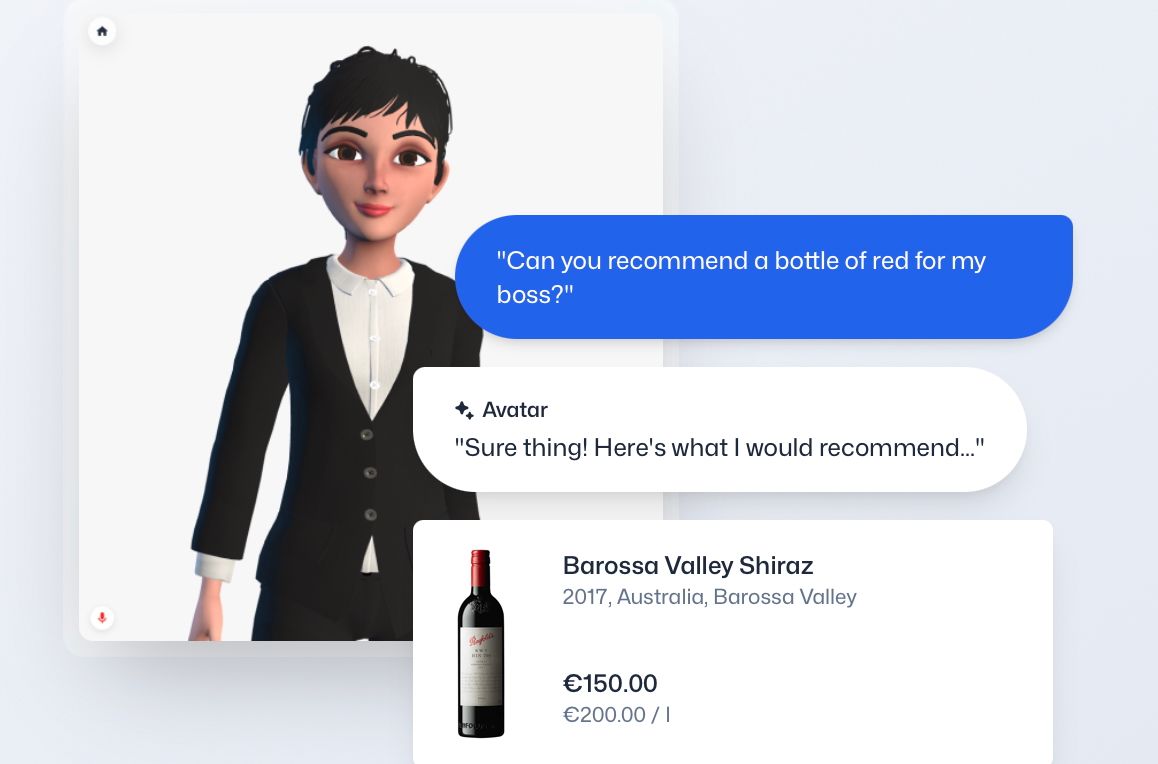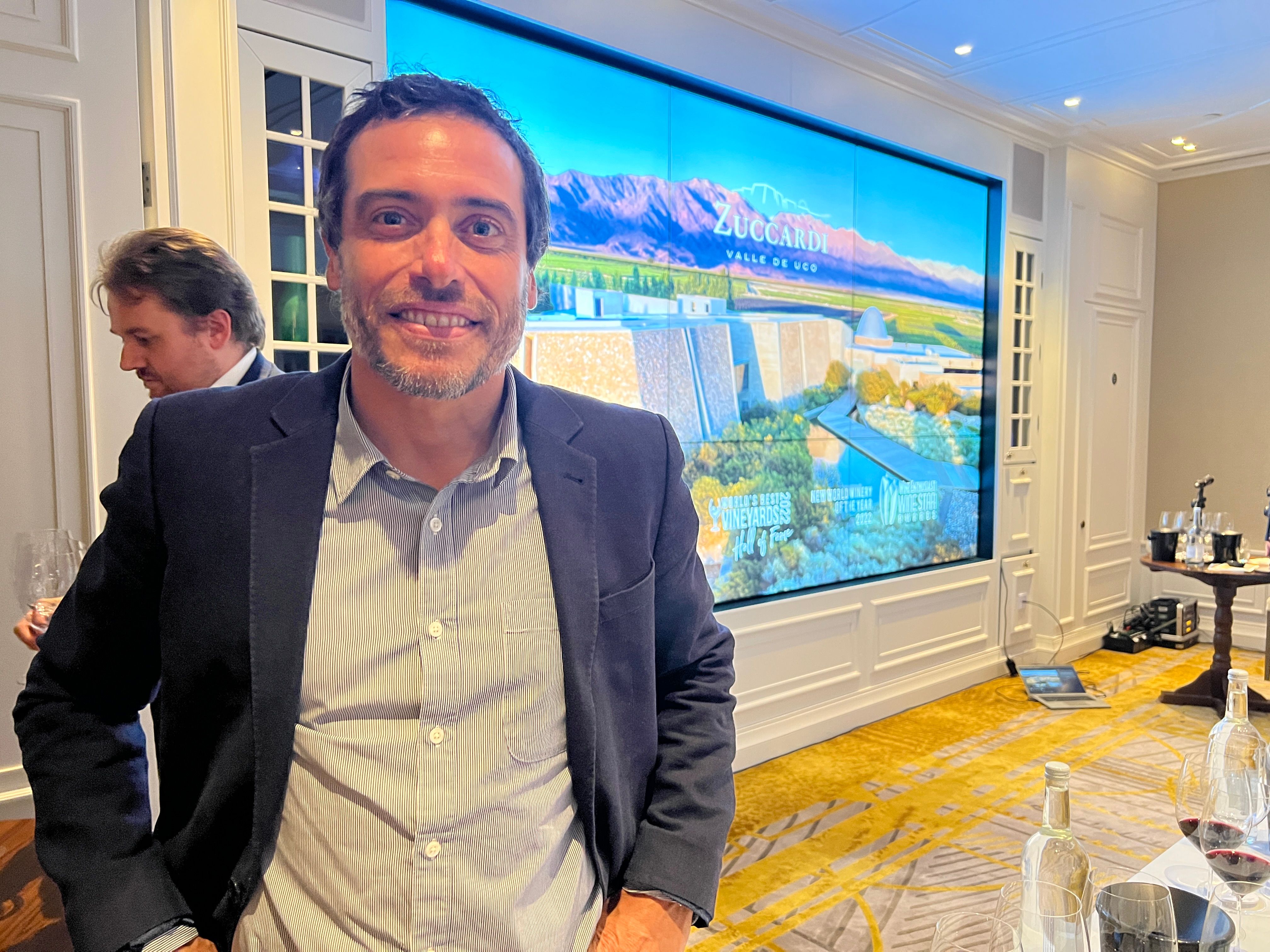Elisha Rai and Tom Cannon see no reason why England can’t be as famous for its rosé wines as southern France and have created Folc to prove it.
Can you tell us about your background and how you got into the drinks industry?
We both worked in the City during our twenties, Tom in venture capital and Elisha as a lawyer. We knew early on that we didn’t want to spend the rest of our careers waiting for the time when we could retire early from our day jobs and buy a wine estate to pursue our real passions, so through extensive research on different wine production business models, late nights working on a robust business plan, and a lot of time and research on everything from grape growing conditions to distribution models, we took the leap during the pandemic to launch Folc remotely and with no physical site of our own.
How did you get into wine and what sort of formal wine training have you had?
We got into wine in the same way that most people do, enjoying it with family & friends. Neither of us have a family background in wine, but we could identify a growing trend of those in their late 20s and early 30s discovering wine and wanting to learn more, but being intimidated by the wine world. Both of us have taken our WSET exams and continually learn from the expert winemakers who create our award-winning wine through regular meetings and site visits at the winery.
Ultimately the day-to-day training comes from running the business as a small team – we learn something new every day whether that is related to viticulture or the bottling line, neither of us can shy away from the realities of wine as a business, craft and science.
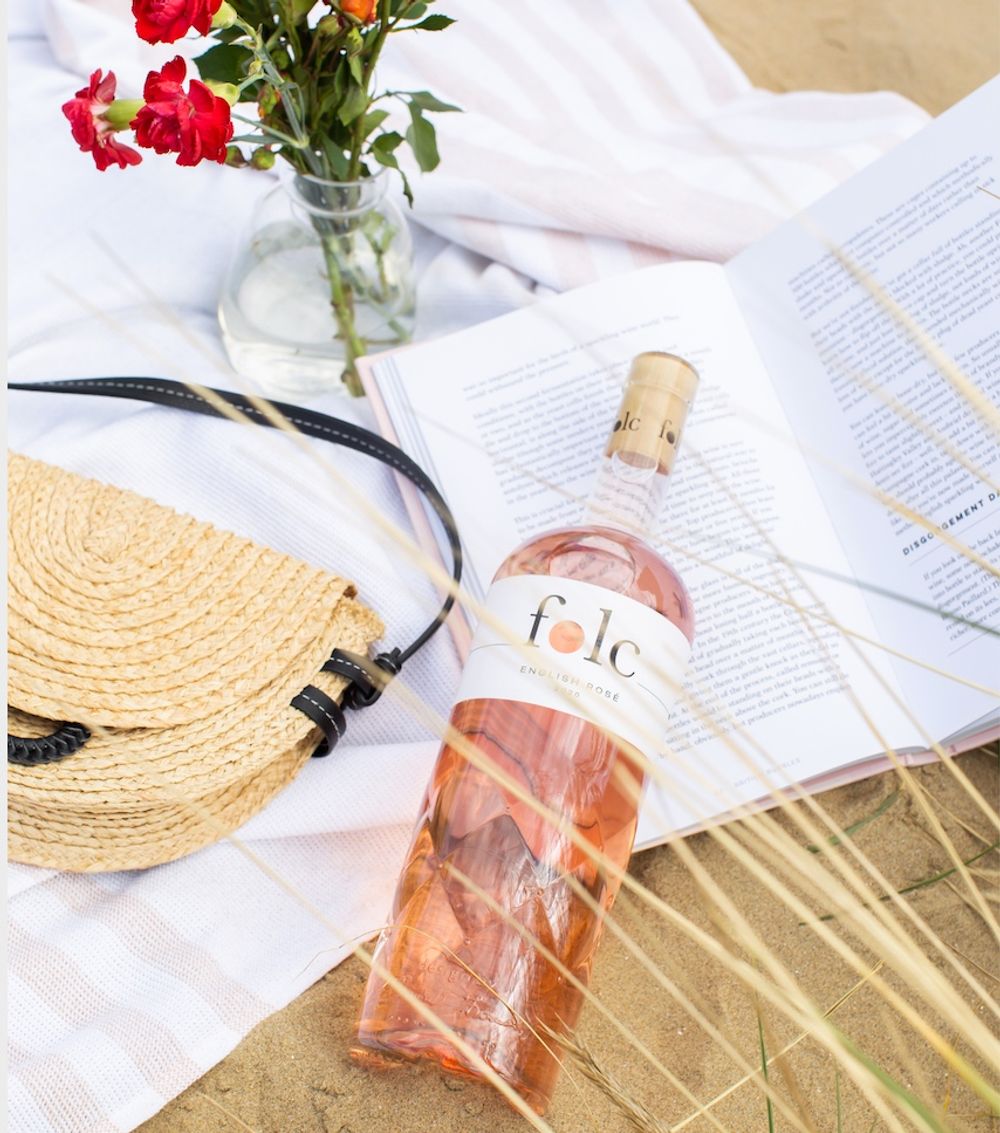
Folc is an English rosé brand that is using the same brand power credentials of its peers in Provence
Why did you decide to make your own rosé English wine?
Quite simply we knew England could create outstanding sparkling wine and historically production has predominately been focused on this given the proximity and similar terroirs shared with the famous Champagne region. These wines have achieved great successes on a global stage which has lead to an explosion in the plantings of varieties such as Pinot Noir and Pinot Meunier over the past decade.
Rosé production is well suited to cooler climates, when red grapes may fail to ripen sufficiently for red wine production and we felt there was plenty of opportunity to source high-quality grapes right here in England with the view to produce some of the best still wines in the world and more specifically its rosés. So we decided to focus on creating quality still English rosé to really showcase that English wine can, and should, be something enjoyed by everyone.
Where did the concept for Folc come from?
Our own experience really. As the average wine consumer we didn’t feel like there were any wine brands out there that really spoke to us and included us in their English wine journey, hence the name ‘Folc’ which is an old English noun for people, tribe and community. The lightbulb moment came when carrying out our own blind rosé tasting of Provencal rosés vs English rosés. Once we’d tallied up the scores and released that the English were consistently coming out on top, that was the moment Folc was born.
How have you found it bringing the wine to market – biggest challenges to overcome?
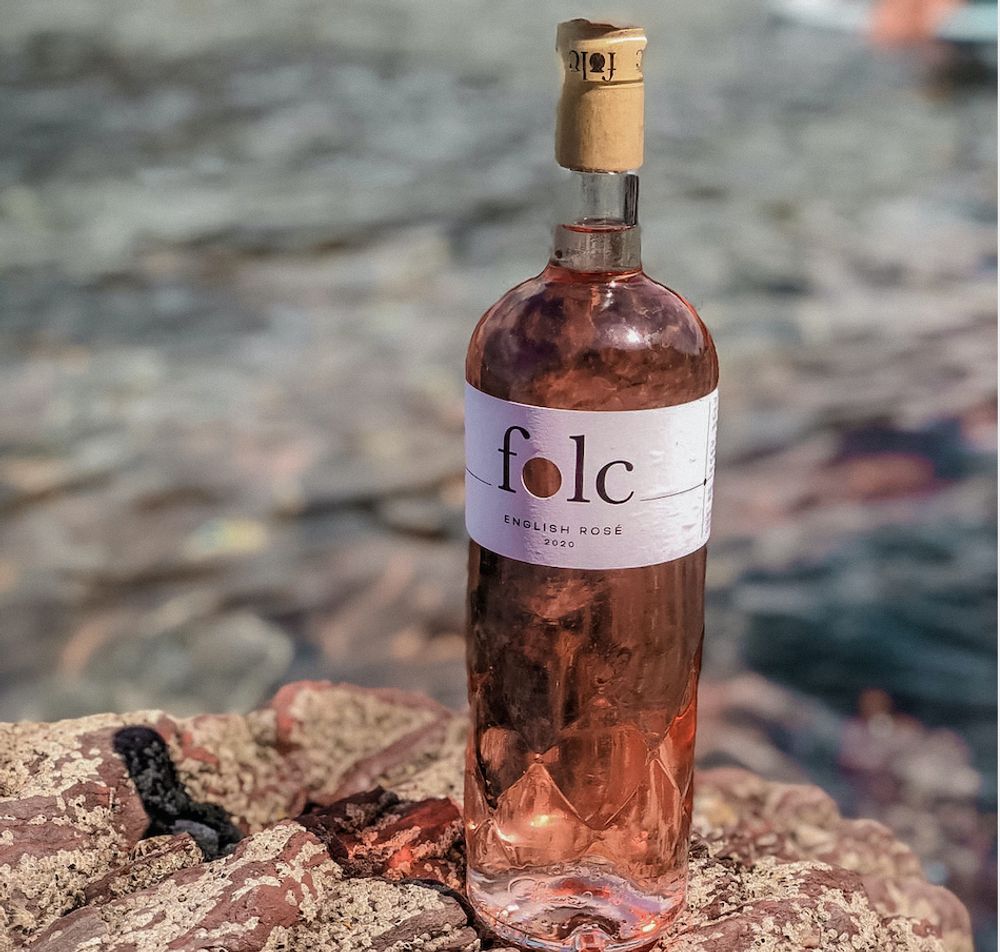
Folc uses a combination of classic Champagne and German grape varieties grown in Kent and Sussex
As we launched during the pandemic we had to rely heavily on our online presence and social media as our only route to market at the time was direct to consumer. We had originally planned to focus more on physical stalls at music, food and sports festivals, so that we could have a direct interaction with the customer so had to pivot quickly into a different model altogether. The biggest challenge for us to overcome was to change the perception that the only rosé worth buying or including on a wine list is one from the south of France. This is usually pretty easy to solve once that person has tried Folc though.
You have decided on making a blend – why is that and where do you source the fruit from?
Rosé has become a favourite among dedicated wine drinkers and newbies alike because of the wide range of premium wines and packaging that are on the market today. Rosé is very on-trend as it’s fresh, elegant and easy drinking – as soon as you sip it you want more. Stylish, sophisticated and desirable, rosé is a lifestyle in a glass of wine.
This is integral to all our decisions when it comes to making our wine, from selecting the grapes which currently grow well in England and deciding on the colour and taste we are looking to achieve for a particular vintage. For us it was important to use the Champagne variety of grapes that we know grow very well in England to achieve that quality of wine (Pinot Noir, Pinot Meunier and Chardonnay), but the Germanic grapes used (Reichensteiner, Schonburger and Dornfelder) also give a wonderful nose to the wine as they have an aromatic touch which we think really makes our rosé stand out.
The colour is also important to us so depending on the harvest and when the grapes have been picked, we may add a darker grape to add more colour which is naturally lost during the winemaking process. We source our fruit from family run vineyards in Kent and Sussex.
Does that give you flexibility harvest to harvest to source fruit from where there is supply at the right price?
Yes and no. We do have the flexibility to source fruit from different vineyards, and a lot of the larger wine producers use this same model as it limits the risk of severe weather having a catastrophic impact on your entire crop. The pricing all comes down to the market price for a particular grape variety based on that year’s yield and what variety you’re looking for. At the moment, we as a nation can’t really compete on price per tonnage of grapes when compared to some of our friends from across the pond for obvious reasons. It’s important that we as a movement in English wine continue to push the government to recognise this and make the necessary adjustments and allowances to allow the industry to continue to thrive.
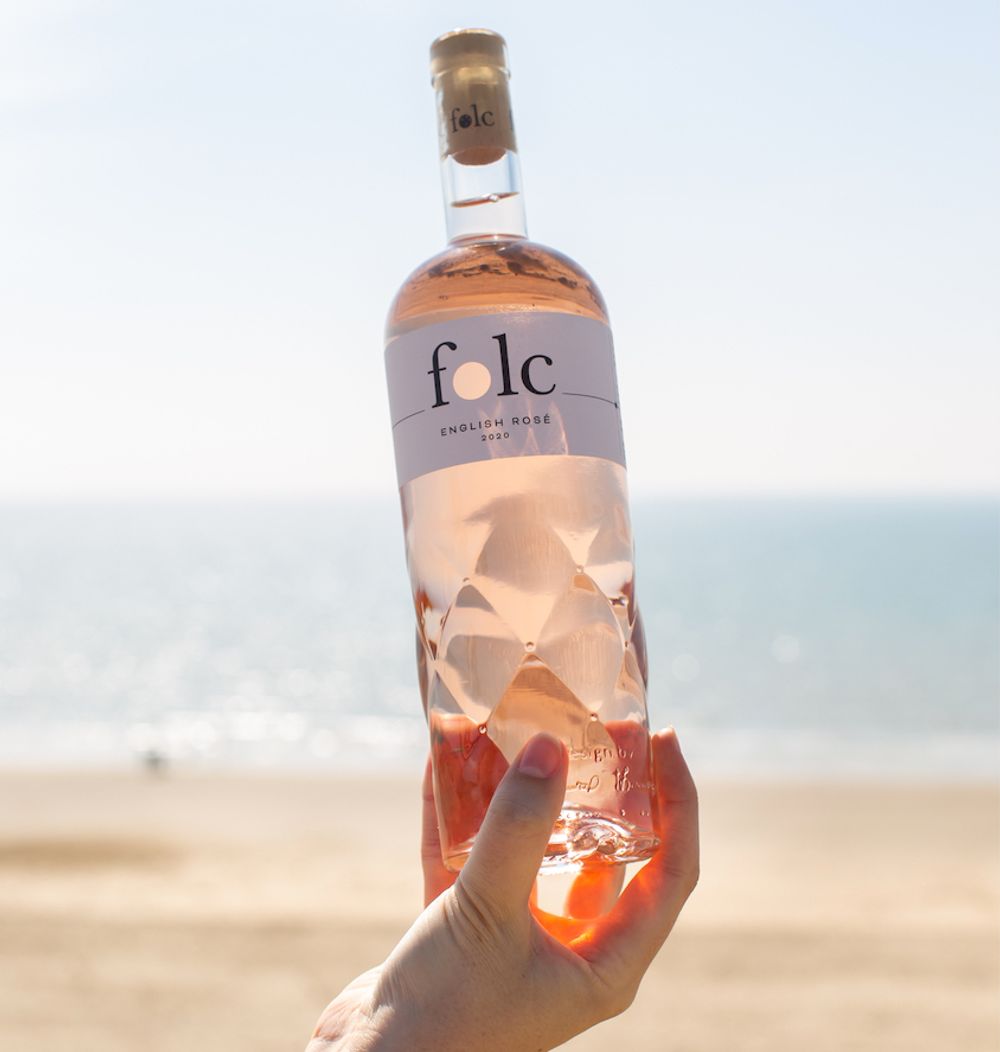
Folc has an ambition to be carbon neutral in a few years and is part of WineGB’s sustainable project
What route have you taken in terms of distribution and getting the wine in to the market?
As we don’t own an estate ourselves, we don’t have a cellar door style approach so focus largely on online sales through our own website and online distribution partners. As the business grows we are moving into more physical stores at a regional level in Kent and Sussex, and on-trade in restaurants and hotels around the UK. We’re also in discussions with several national wholesalers with the view to partner with one of these as we continue to scale our production to meet demand.
We had originally planned to focus more on physical stalls at music, food and sports festivals, so that we could have a direct interaction with the customer but had to pivot quickly into a different model altogether. We’re extremely happy that we were early in the trade to have a great website to deal with direct-to-consumer orders.
I think we will continue to focus on direct-to-consumer trade as this speaks to our desire to bring people into the world of wine and make them feel included, but we also love being in hospitality environments where people can enjoy the wine as part of an evening out and an experience they will remember.
What lessons have you learnt in the last year?
The weather is never certain, with this year being a prime example, so diversity in terms of geography of your vineyards help to ensure we can source consistent quality fruit for our wine. Also, social media presence when launching a new wine brand is integral and if anyone tells you that English wine can’t compete against Old World wines don’t believe them.
You have just enjoyed some success in wine competitions – what have you won?
We won a silver medal (90 points) at the IWC 2021 awards and were the highest scoring still English rosé, another silver at the Wine GB 2021 awards and a bronze at the IWSC 2021 awards. Not bad for our first commercial year in the making.
What does that mean for you and the business in terms of confidence and future sales?
It has been a real boost to both. We were judged early on in our launch for our youth and style of marketing, being labelled as more of a ‘lifestyle wine’ because we have a nice looking bottle and good social media imagery. But what those medals do is show that an aesthetically pleasing bottle and quality are not mutually exclusive – the expertise that goes into the winemaking, which has always been our focus, to make quality English wine first, but with a modern mindset so that you’re speaking to today’s customers’ values which will naturally increase sales.
What are next stages for the brand – how are you going to grow?
The ultimate aim for Folc has always been to put English rosé on the map, to be up there with the best of the best rosés and for people to know that England can create these outstanding wines, so we will continue with this mission by growing our volume each year to reach more and more people.
You are part of Wine GB’s Sustainability scheme – what does that involve?
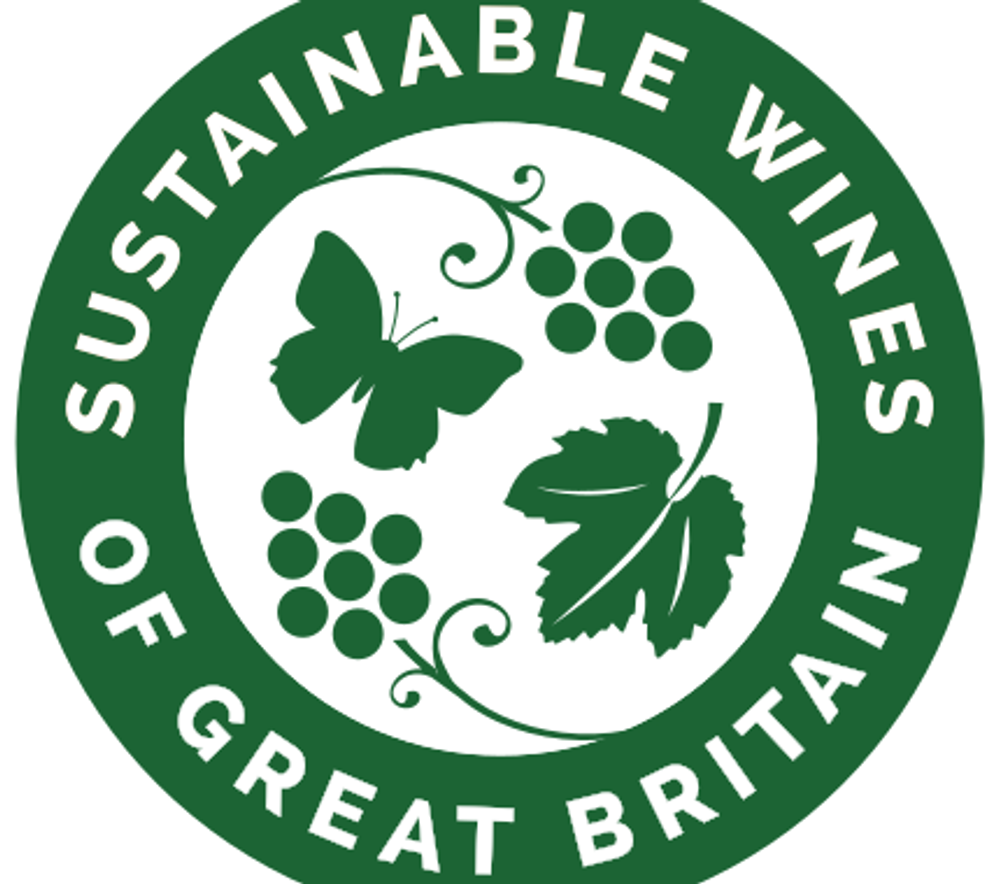
Our winery follows set sustainably scheme guidelines set by Wine GB and also needs to successfully complete an independent audit every three years. The winery must observe, measure and record data relating to the sustainability objectives, which will then be benchmarked with that of other members. Our carbon footprint at the winery is calculated on an annual basis along accreditation only being passed and maintained if it can be shown that the guidelines have been met such as improving the winery design to reduce its environmental impact, reducing the energy and water footprint per bottle of wine and reducing the environmental impact of wine packaging.
Furthermore we’re immensely proud of using zero plastics from grapes to glass and have ambitions to be completely carbon neutral in the coming years. It’s not the cheapest way to run a business but in today’s world you can’t ignore ethical living standards and the compounding impact small business decisions can have on our climate. Take for example our cork which is derived from sustainable, renewable sugarcane-based raw materials. The plant-based ingredients used in production are harvested using techniques ensuring there are no negative effects on the food supply or the environment resulting in a carbon negative product.
As you can probably tell it’s a lot to manage but has always been vital to Folc’s belief that wine should be produced in a sustainable way.
Are you looking at export opportunities?
We know the Nordic countries, Asia, Canada and the US are big markets and supporters of English wine so in the next year we will be looking to widen our reach for Folc from a geographical perspective while also ensuring we’re making the noise in the UK market that English rosé needs to reach the top of the wine market.
Elisha – do you see yourself as a potential role model being a BAME founded UK wine producer?
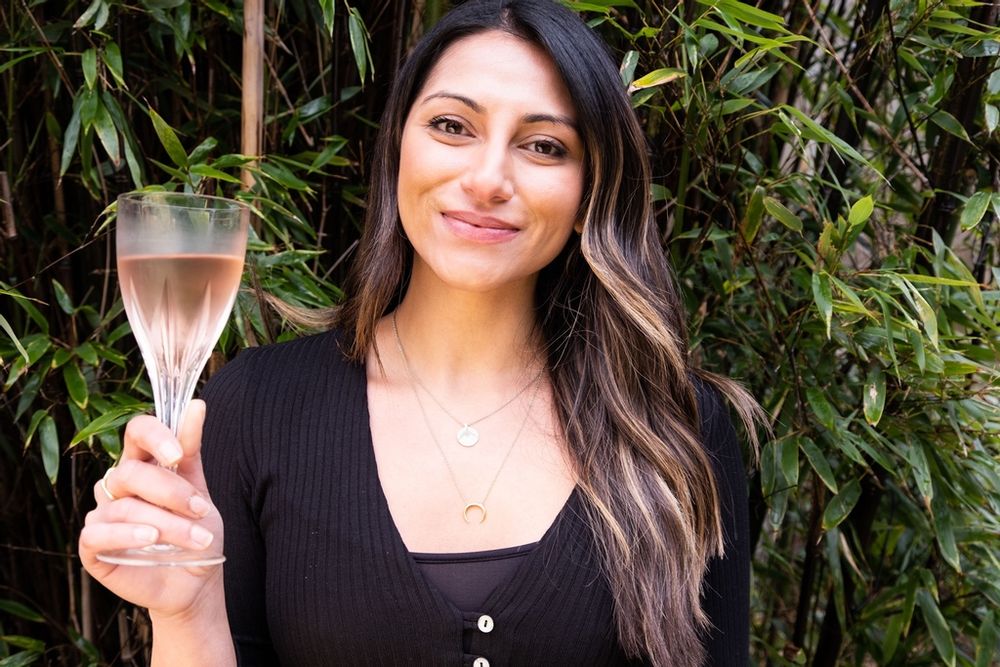
Elisha Rai says she found it hard to come into the English wine industry with no other BAME
I would hope so, not from an inward looking perspective but more as a point of reference – the phrase ‘be the change that you want to see’ comes to mind as before launching Folc I couldn’t see a single other person of colour working in UK wine production. That was even more intimidating for me than the wine world itself so I hope that through my promotion and championing of Folc and English wine in general, it will encourage more people of colour to feel that wine is something they could not only work in but also thrive in.
Would you like to see the UK industry becoming more diverse – and what do you think would be key steps in helping that happen?
Absolutely. The English wine industry has some incredible women working in it, from CEOs, winemakers, estate owners and wine communicators, but there are still not enough and from a race and sexual orientation perspective, there are next to none who push the classic ‘wine’ stereotype.
Change has to start from within and ideally in an organic way as the City approach of quotas has yet to break the glass ceiling. Communication is the first step. I think it’s key that each brand takes responsibility to shout about the people who work for them that reflect today’s society (and not just on International Women’s Day or similar).
The second is education, whether this is in the form of mentorship, scholarships or education in schools and sixth colleges. The former will encourage those from less affluent backgrounds to consider a career in wine, especially when bearing in mind the barrier to entry that is the high cost of wine exams and qualifications, and the latter will get the conversation started that wine as a career can stretch from the scientific aspects of winemaking, geographical of vine planting to the creative elements of marketing, and not enough young people know that these even exist.
- If you would like to find out more about Folc English rosé you can go to its website here.
